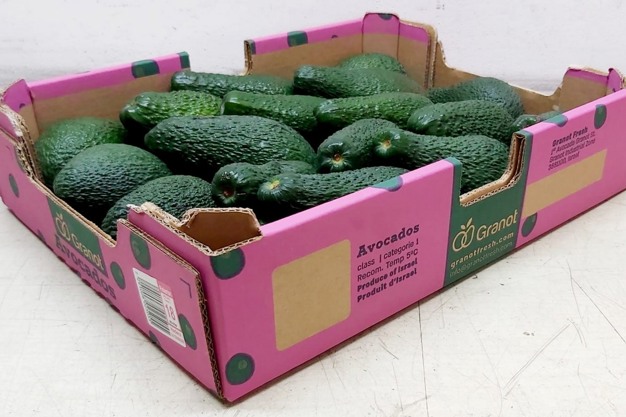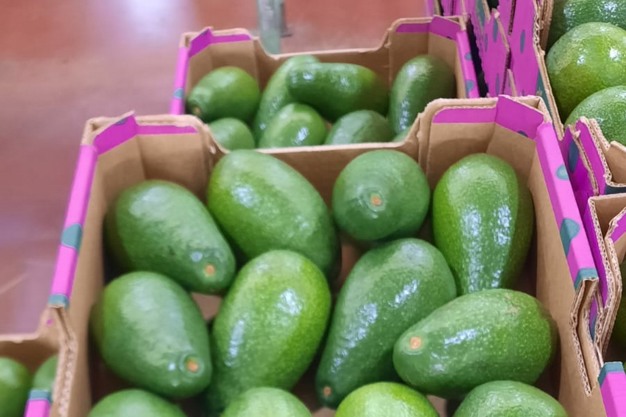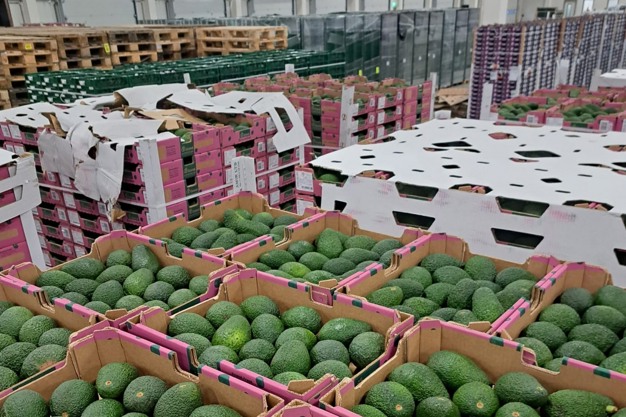Israel's 2024/25 avocado harvest is expected to start a bit earlier than usual, mainly due to a hotter than usual summer. The first trickle of Green skin avocados will be exported starting next week. The main and real harvest is expected to start from the end of this month," says Yonatan Meron, Export Manager of Granot Fresh.

Itay Schnitzer, Granot's avocado product manager, said that while it is still too early to predict every detail of the coming harvest, they expect to have a harvest in line with last year. "For Green skin, we expect to export a bit less. Some plots in the North of Israel are pushing the dry matter a bit higher due to the warm summer. I guess the first shipments of small volumes will already start in next week. The Green skin has an almost empty market in Europe for the time being. Our first big shipments will start towards the end of August or the beginning of September. It's the Galil variety that will be the first of the season, while during September we'll start the Ettinger campaign."

"The expectation in our plots is to have the same volume as last year. We do see a decline in Pinkerton, with this year being an off year for this variety. As we go forward, all over Israel, the share of Hass is growing. From what we know, it's going to be a big season in Israel, with 250,000 tons of fruit on the trees. We estimate that half of that will be exported. We still don't have the final numbers from the field, and we're evaluating how much fruit there is. In September, we usually have a better understanding of what's going on in the total Israeli avocado industry. For now, the season looks more or less the same as the last one," Schnitzer states.
They are still not sure how the sudden hotter weather at the start of summer will affect this year's avocado crop. "We're not sure how it will play out. Last season, we saw how a warm winter was pushing the dry matter up. We are not there yet to see the effects of the summer, which started with extremely hot temperatures; 35 degrees and higher. The dry matter tests we ran in our plots were normal. We don't see a significant change. As for the external appearance of the fruit, it looks better than last year. Especially for the Green skins, that last year suffered from the summer hot winds. The outside appearance of fruit is better. It is still too early to say what the sizing will be. For now, we expect a normal sizing season."

In terms of markets for Green skin, Russia remains key, despite logistical challenges and the war. "For the Green skin Russia is an important market for us, it never stopped to be important. Ever since the war, we've continued to operate there, although it's not easy. In Europe, the market is good now. The summer avocado market is much better than previous years. Our main export season is between January to March when the Hass is in full swing. We know we're going to have pressure from clients before that. Demand is expected to stay good, though we know some of the other winter suppliers might have more fruit than last year," states Meron.
Kenya season coming to an end
Granot recently expanded with avocado plantations in Kenya, with the season there coming to an end. Logistical challenges are still the biggest obstacle. "With our Kenya season expectations, our biggest challenge is logistics, especially due to the Suez Canal issues with the Houthis. We have to go past the Cape of Good Hope to Rotterdam that takes 40 days. That's two more weeks than last year. It makes the whole thing much more challenging. This season in Kenya is about to finish, they also had severe weather incidents with floods and strong rains, but generally what we see is that logistics is the biggest challenge. It affects the performance of the fruit at the end of the day," concludes Meron.
For more information:
Yonatan Meron
Granot Fresh
Tel: +972 52 6808805
Email: [email protected]
www.granotfresh.com
